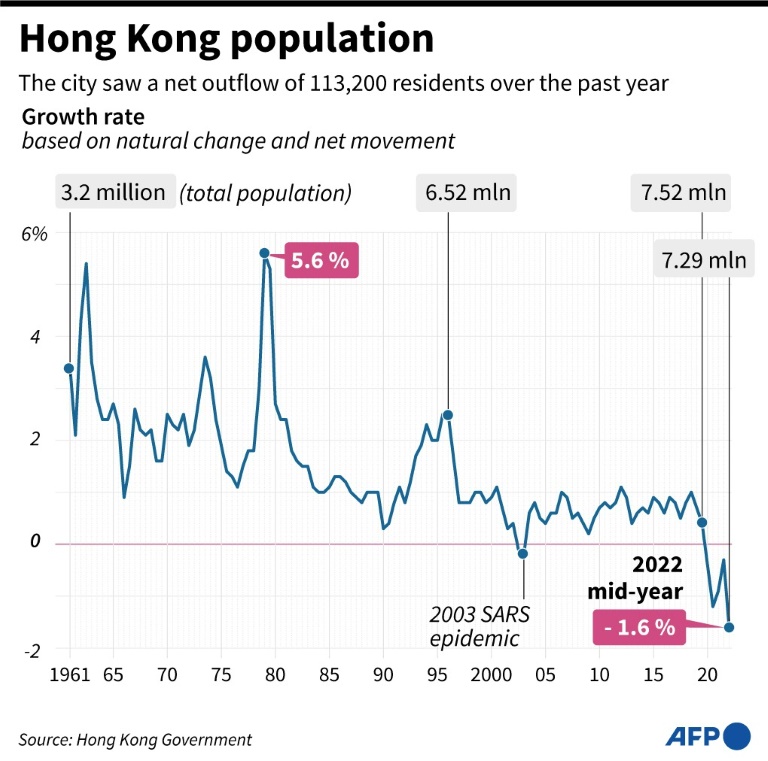
U.S. House Passes Bill Targeting Hong Kong Economic Offices Amid Deteriorating Human Rights Situation » Capital News
Sep 27 – In recent years, Hong Kong—once celebrated as a bastion of political and civil liberties in Asia—has experienced a sharp decline in human rights under Chinese governance.
The city’s transformation from a semi-autonomous region to an increasingly controlled enclave of China has raised significant alarm among international observers, human rights organizations, and governments globally.
In response to this troubling trend, the U.S. House of Representatives has approved pivotal legislation that could lead to the closure of Hong Kong Economic and Trade Offices (HKETOs) in the United States. This legislative move is expected to adversely affect the financial interests and influence of the Chinese Communist Party (CCP).
On September 10, the House passed the bipartisan Hong Kong Economic and Trade Office (HKETO) Certification Act with an overwhelming vote of 413 to 3. The bill mandates that the U.S. president must revoke specific privileges, exemptions, and immunities currently granted to the HKETOs located in Washington, New York City, and San Francisco, should it be determined that Hong Kong no longer enjoys a high degree of autonomy from China.
If the U.S. government concludes that the HKETOs fail to meet the required standards, their operations must be terminated within 180 days. Conversely, if they are deemed compliant, they may continue operating for an additional year before undergoing another assessment.
The legislation, co-sponsored by Rep. Chris Smith (R-N.J.), chairman of the U.S. Congressional-Executive Commission on China, and Rep. Jim McGovern (D-Mass.), represents the first significant congressional action addressing the deterioration of freedoms in Hong Kong since the implementation of the National Security Law in March. This law has facilitated further incursions into the human rights landscape of Hong Kong.
During a hearing on September 10, Rep. Smith emphasized the bill’s importance, stating, “This is a necessary next step to tangibly demonstrate our solidarity with the persecuted citizens of Hong Kong,” including notable figures like imprisoned media tycoon Jimmy Lai and activist Joshua Wong. He lamented that “the Hong Kong we once knew and respected is gone,” criticizing the current administration for being “as repressive as their masters in Beijing.”
Smith further condemned the HKETOs for functioning as “Beijing’s propaganda arm” in the U.S., alleging their role in obscuring the truth about the CCP’s actions in Hong Kong. This legislative action signals a broader U.S. response to the erosion of freedoms in Hong Kong, indicating ongoing scrutiny of Beijing’s influence in global affairs.
The unique status of Hong Kong was guaranteed by the Sino-British Joint Declaration, which pledged the preservation of its political and economic systems for 50 years following the 1997 handover. However, Beijing’s encroachments have severely undermined this autonomy.
The introduction of the National Security Law in 2020 marked a watershed moment, with broad and vague definitions used to stifle dissent and suppress freedoms. In 2019, millions of Hong Kong residents protested against the CCP’s extradition law to protect their human rights and judicial independence, only to face harsh crackdowns supported by the CCP-aligned Hong Kong Police.
This law has led to a widespread crackdown on pro-democracy activists and opposition figures, with prominent leaders like Joshua Wong and Agnes Chow imprisoned for their activism. The law’s implementation has also resulted in the closure of organizations and media outlets critical of Beijing’s policies, drastically restricting freedom of expression.
The government has increasingly censored public speech and curtailed demonstrations, extending the crackdown to educational and cultural spheres where educators and artists face pressure to adhere to pro-Beijing narratives. School curricula have been revised to emphasize national security and loyalty to the Chinese state, raising accusations of indoctrination.
Judicial independence, once a hallmark of Hong Kong’s legal system, is now under threat as the Chinese government exerts growing influence over judicial matters. High-profile trials of pro-democracy activists have cast doubt on the impartiality of the judiciary, exacerbating international concerns regarding the deteriorating human rights situation.
As governments and human rights organizations express alarm over the situation, the U.S. has enacted measures like the Hong Kong Autonomy Act and imposed visa restrictions on officials deemed responsible for undermining freedoms in the territory. The humanitarian crisis is further highlighted by the plight of those who have fled Hong Kong seeking asylum, showcasing the personal risks of Beijing’s ongoing crackdown.
Returning to the recent legislation, it must now be approved by the U.S. Senate before being sent to President Joe Biden for final signing into law. Anna Kwok, executive director of the Hong Kong Democracy Council and a target of a $128,000 bounty for alleged breaches of the national security law, has endorsed the bill, asserting it is crucial for holding the Hong Kong government accountable for its egregious human rights violations.
In response to the bill, CCP Foreign Ministry spokeswoman Mao Ning condemned the action during a regular press briefing on September 11, stating, “We strongly deplore and firmly oppose the U.S.’s egregious move of manipulating Hong Kong-related issues.” The Hong Kong government also issued a statement on the same day, expressing strong disapproval of the U.S. House’s actions, describing the bill as “gross interference in Hong Kong’s internal affairs.”
